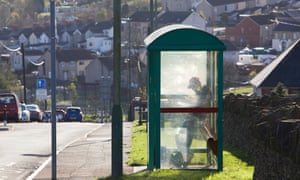By Girish
Menon
Introduction
You will have
recently read:
What does this mean?
Just like the
Forbes magazine compiles an annual list of the richest individuals on planet
earth, most countries participate in an annual ‘show of wealth’. The most
commonly used measure in this competition is called GDP. At the end of 2019 the
top six countries were:
Table 1
Country
|
GDP
($ trillions)
|
Economic growth over previous year (%)
|
Per Capita GDP ($)
|
Share of World GDP (%)
|
19.5
|
2.2
|
59, 939
|
24
|
|
12.2
|
6.9
|
8,612
|
15
|
|
4.9
|
1.7
|
38,214
|
6
|
|
3.7
|
2.2
|
44,680
|
4.5
|
|
2.7
|
6.7
|
1,980
|
3.28
|
|
2.6
|
1.8
|
39.532
|
3,26
|
What do these terms mean?
Simply
defined, GDP or Gross Domestic
Product is the money value of all goods and services (goods) produced within an
economy in a period of time. In Table 1 the GDP is estimated over the year of
2019. The data quoted in the introduction compares GDP changes over the first two quarters of 2020.
Economic growth is a measure of the
additional goods produced by an economy over the last period of time (say a year or a quarter).
Per Capita GDP means the value of goods
each resident would get if all goods produced in an economy is shared equally.
This is calculated by dividing the GDP with the residents of the country. Do you think per capita GDP is an accurate description of how goods are actually distributed in an economy?
Share of World GDP means the share of
global goods produced by an economy. This is calculated by dividing each
country’s GDP with the whole world’s total GDP.
Why is GDP and the rate of Economic growth
so important?
Materialism is the underlying
principle of using GDP and economic growth as the most important indicator
of economic performance. Materialism, according to the Cambridge English
Dictionary, is the belief that having money and possessions is the most
important thing in life. It follows that as one’s material goods increases
one’s standard of living (happiness) tends to increase.
GDP is a tool that
measures the volume of material goods produced by an economy. A high rate of
economic growth demonstrates the rate at which the material goods in an economy
is increasing and as a result the happiness of the residents as well. So, when
the rate of economic growth becomes negative, as in the data mentioned in the
introduction, it follows that your happiness will decrease.
Are GDP
and GNP the same?
They are similar but
not the same. GDP measures the volume of goods produced by people living within
the boundaries of an economy. The output of Nissan’s Sunderland plant will be
included in UK UK will be added to calculate UK
GNP stands for Gross
National Product. It is a measure of the volume of goods produced by British
nationals living in the UK
Is GDP an accurate measure of the volume of
goods produced within an economy?
The answer is
No. The calculation is arduous and with questionable assumptions which I will
not go into here. I will however mention some weaknesses here:
1. Even though there are some standardised procedures for
its computation governments are known to deliberately intervene in its
methodology and computation.
2. Not all goods are included. For example if you clean
your own house and look after your family – these services are not included.
However, if you employ a cleaner, a cook, a nanny and a driver then their
services are included.
3. In some countries where there is a large informal economy. The goods produced by such activities are not be included in GDP computations.
Does an increase in GDP necessarily improve
residents’ happiness?
In economics, happiness
is better known as welfare.
If there is an
earthquake in your country and many roads, buildings, bridges, stadia are
destroyed. Then rebuilding them will increase the national GDP but has it
improved the citizens’ welfare?
As a resultant
of economic growth the quality of air you breathe has gone down and the water
supply is polluted. Has this improved your standard of living?
Due to
increased standard of living everybody has a car and you are now required to spend one hour extra
in commuting time. Has this resulted in improved happiness?
What is the prognosis for GDP and economic
growth?
It appears
that due to Covid-19 the GDP of most nations will be lower than in 2019. These
economies will have negative economic growth which means that in 2020 they will
produce fewer goods than in 2019.
When the GDP
falls, the terms most used are recession and depression. The difference between
the two according to Harry Truman is ‘It's a recession when your neighbour loses his job; it's a depression when you lose yours’ .
As
you have seen in the news, firms are busy firing staff which means there will
be increased unemployment. Since more people are unemployed they will not have
money to buy goods in the future and so there will be even less demand for goods in
the future and those who have jobs today may lose their jobs next year in a downward spiral of negative economic growth begetting even more negative growth.
Will there be lower
emphasis on GDP and economic growth in the future? For such a change to happen
there needs a material change in organising the world economy. (If you wish to read further click here)
I hope it happens
in my lifetime.
* - annualised rate---Also watch
How the Economic Machine Works by Ray Dallio




